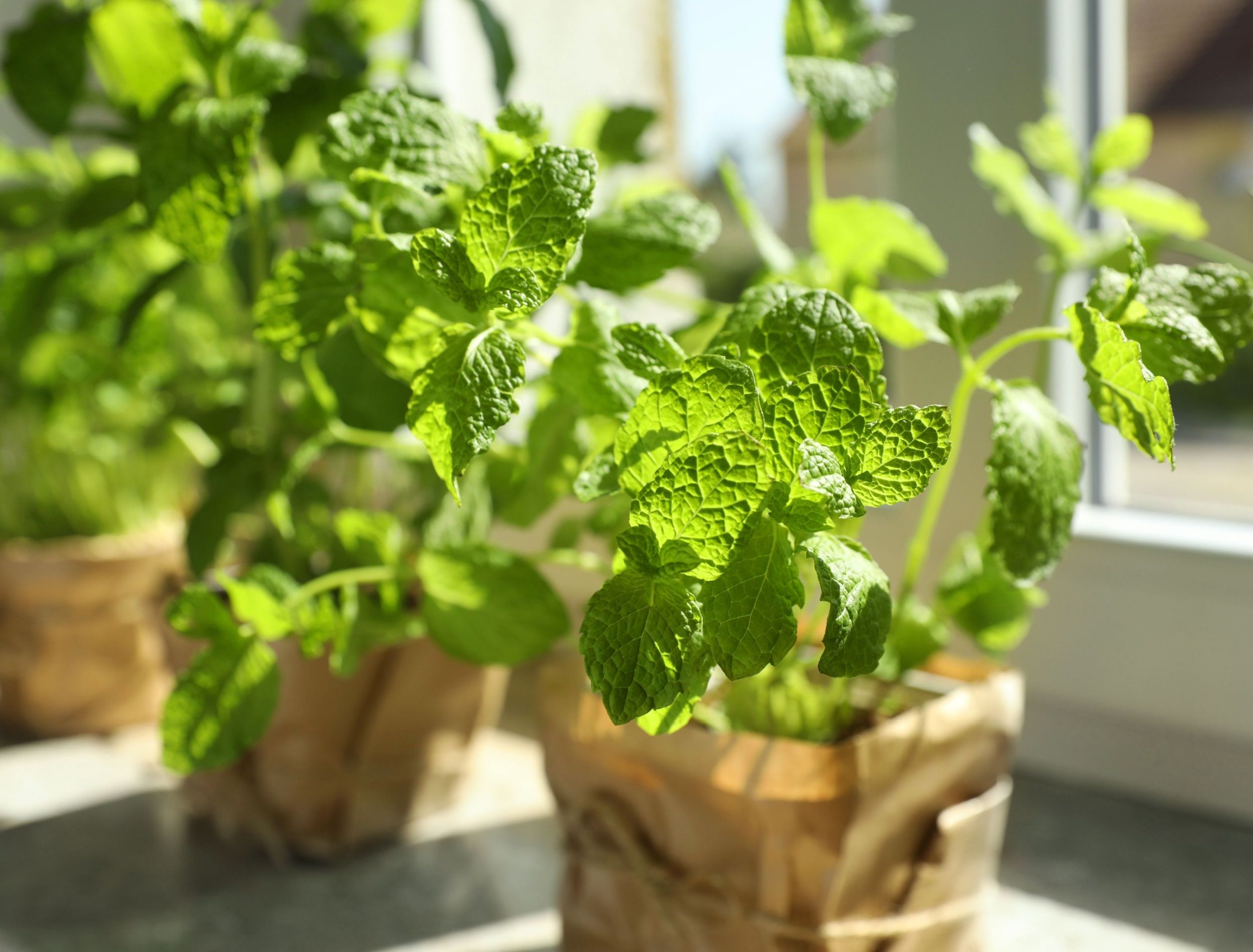At-home herb gardens are making a comeback – and mint is leading the charge! Mint is a herb many love; gladly, you can think of growing it at home. If this friendly herb has a space in your heart, you surely can give it a little area in your indoor garden. There are many reasons why mint might be worth growing in your home or apartment.
Fresh mint has several significant benefits, both culinary and medicinal, and some lesser-known but equally valuable properties that can help you in your daily life.
1) Keeping Pests Away
Image credits: Poranimm Athithawatthee via Pexels
Some people grow mint inside their homes to keep pests away! If sneaky pests are making their way into your home, then a freshly potted mint plant may be just what you need. The pungent smell of mint will stop pests from making your home their home.
Did you know that dried peppermint leaves near the openings will also repel ants? If you plant mint around the foundation of your house, ants will stay at bay.
2) Growing for Cooking
Image credits: micheile.com || visual stories via Pexels
Mint is a commonly used herb in cooking. When you grow it at home, you can enrich the flavor of food by adding it to your yummiest salads. Or you can use it in dried form for garnishing. They spread very quickly and are economical compared to what you buy from stores.
Fresh mint can be eaten uncooked but is typically used to enhance the taste of vegetables, fruits, grains, and meat without overpowering it.
Fresh mint and mint oil are also vital components in many signature desserts. Mint chocolate chip ice cream and grasshopper pie are some of the amazing desserts you can whip up by using fresh mint from your home garden. Keep a plant in your kitchen so it's always on hand!
When it comes down to drinks, the possibilities are endless. If you want to serve your guests something unique, head to your garden, pick some mint leaves and add them to your mojito or lemonade. It adds that punch of freshness!
Pro Tip: Fresh mint pairs well with your spring veggies such as peas, lettuce, and your green beans salad.
3) Planting Mint at Home Can Reduce Fatigue
Image credits: Ketut Subiyanto via Pexels
Mint leaves are natural stimulants. It calms your mind and helps you feel less stressed and depressed. The aroma from mint leaves helps release a small amount of serotonin, the happy hormone which increases your brain function and helps in productivity.
You can keep a mint plant on a window sill close to your work desk to increase productivity. You can even draw a warm bath and sprinkle mint leaves into the water to eliminate all the stress after a long and hard day.
4) Combat Nausea, Headache, and Menstrual Cramps
Image credits: Sora Shimazaki via Pexels
Growing mint in your home has many health benefits. The plant is rich in Vitamin A and minerals such as manganese, potassium, and iron, which are vital for improved brain function, hemoglobin production, and good eyesight.
It is often used to combat headaches, nausea, indigestion, and menstrual cramps.
To alleviate a headache, try drinking a cup of peppermint tea or inhaling the scent by crushing fresh mint leaves from your garden and placing them on a towel near your pillow.
You can also rub the oil from crushed leaves on your forehead or temples and behind your earlobes to reduce headache, nausea, and motion sickness.
Mint leaves are rich in antioxidants and phytonutrients that help with stomach issues. It aids in indigestion, bloating, stomach pain, and even symptoms of IBS.
If you suffer from similar issues, you can make a tasty tea out of chopped-up mint leaves from your garden by steeping them with boiling water for five minutes and adding honey if desired.
Peppermint tea helps relieve symptoms of hirsutism. The tea has androgenic effects, so women who consume two cups of peppermint tea have shown a 30 percent reduction in testosterone levels.
5) Planting for Skin Care
Image credits: KoolShooters via Pexels
If you struggle with skin issues, the mint plant is a must-have. Fresh Mint has soothing and cooling properties and is a popular ingredient in many skincare products.
Mint contains salicylic acid, a mild exfoliant that helps clear pores and acne. If you struggle with oily skin, mint helps to strengthen skin tissue and reduce oil production as it contains vitamin A.
You can make your facial scrub by mixing freshly crushed mint with yogurt. Spread it on your face for a cooling and brightening effect with the help of menthol.
The mint plant is antipruritic; it helps to soothe itchy, flaky skin. You can apply cold mint tea to the affected area if you struggle with dry and itchy skin.
Easy to Grow and Packed With Benefits
This post must have motivated you and given you some reasons to grow fresh mint. Mint is one of the most versatile plants in your garden. It can help keep pests away, add natural seasoning to your food, and add fragrance to your home — all while being easy to grow.
So, do you have a mint plant at home? How do you use it for different purposes? Share in the comments






